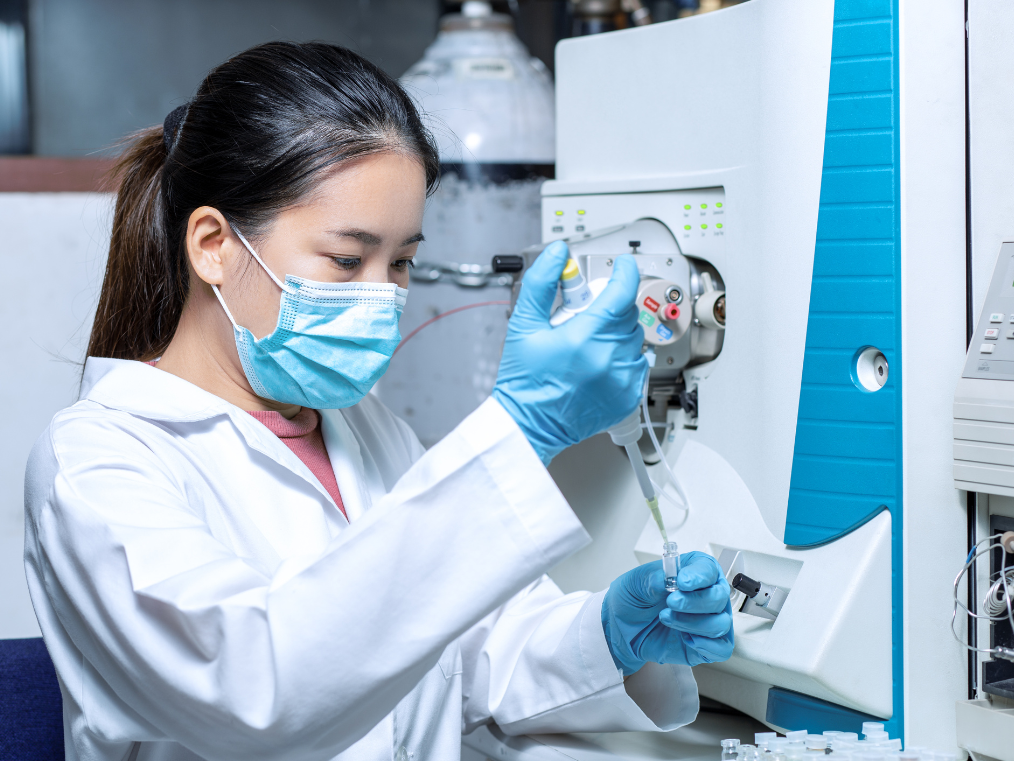
Sample preparation is a critical step in analytical workflows that can significantly impact the accuracy, sensitivity, and reproducibility of results. Different analytical techniques like chromatography, mass spectrometry, and immunoassays often require specific sample preparation approaches. Two common yet contrasting methods are dilution and concentration. This post will explore these techniques and their applications across various analytical methods.
Watch our Ask the Expert series on concentration vs dilution:
Concentration in Sample Preparation
Concentration involves increasing the amount of analyte relative to the sample volume. This is essential when:
• Analytes are present at trace levels below instrument detection limits
• The sample volume needs to be reduced for easier handling
• Interfering matrix components need to be removed
Applications in Analytical Methods
Chromatography: Solid phase extraction (SPE) is frequently used to concentrate analytes from large volumes of environmental or biological samples before GC or HPLC analysis.
Mass Spectrometry: Evaporation and reconstitution are common for concentrating small molecule analytes in LC-MS/MS assays, improving detection sensitivity.
Proteomics: Protein precipitation followed by resuspension in a smaller volume is used to concentrate proteins before digestion and LC-MS/MS analysis.
Concentration Techniques
• Evaporation under nitrogen or vacuum
→ Learn more: What is nitrogen blowdown evaporation?
• Freeze-drying (lyophilization)
• Membrane filtration (e.g., ultrafiltration)
• Solid phase extraction (SPE)
Dilution in Sample Preparation
Dilution involves reducing the concentration of analytes in a sample by adding solvent. This technique is widely used when:
• The sample concentration exceeds the linear range of the analytical instrument
• The sample matrix is too complex and may interfere with analysis
• The sample viscosity needs to be reduced for proper instrument handling
Applications in Analytical Methods
Chromatography: In HPLC and GC, samples are often diluted to fall within the calibration range of the method. For instance, environmental water samples may be diluted before pesticide analysis to match the concentration of calibration standards.
Mass Spectrometry: Dilution helps prevent detector saturation and reduces matrix effects in LC-MS/MS. Biological samples like plasma are frequently diluted to minimize ion suppression.
ELISA: Serum or plasma samples are commonly diluted to ensure analyte concentrations fall within the assay's dynamic range. This is crucial for accurate quantification of biomarkers or antibodies.
Dilution Techniques
• Serial dilutions for creating calibration curves
• Gravimetric dilution for high precision
• Automated liquid handling systems for high-throughput applications
Choosing Between Dilution and Concentration
The decision to dilute or concentrate a sample depends on several factors:
1. Analyte concentration relative to instrument sensitivity
2. Sample matrix complexity
3. Required sample volume for analysis
4. Potential for analyte loss or degradation during processing
5. Time and resource constraints
Considerations for Method Development
When developing sample preparation protocols, researchers should:
1. Evaluate the impact of dilution or concentration on method accuracy and precision
2. Assess potential matrix effects and interferences
3. Optimize solvent selection for compatibility with the analytical technique
4. Validate the sample preparation method alongside the analytical method
5. Consider automation options for improved reproducibility and throughput
Conclusion
Effective sample preparation is crucial for obtaining reliable analytical results. While dilution and concentration represent opposing approaches, both have important roles in various analytical workflows. Researchers must carefully consider the specific requirements of their analytical method, sample type, and target analytes when selecting and optimizing sample preparation techniques. By understanding the principles and applications of dilution and concentration, analysts can develop more robust and sensitive analytical methods across chromatography, mass spectrometry, and immunoassay platforms.
If you'd like to discuss your specific sample preparation needs, please contact our experts at sales@organomation.com or starting a live chat during our normal business hours.
